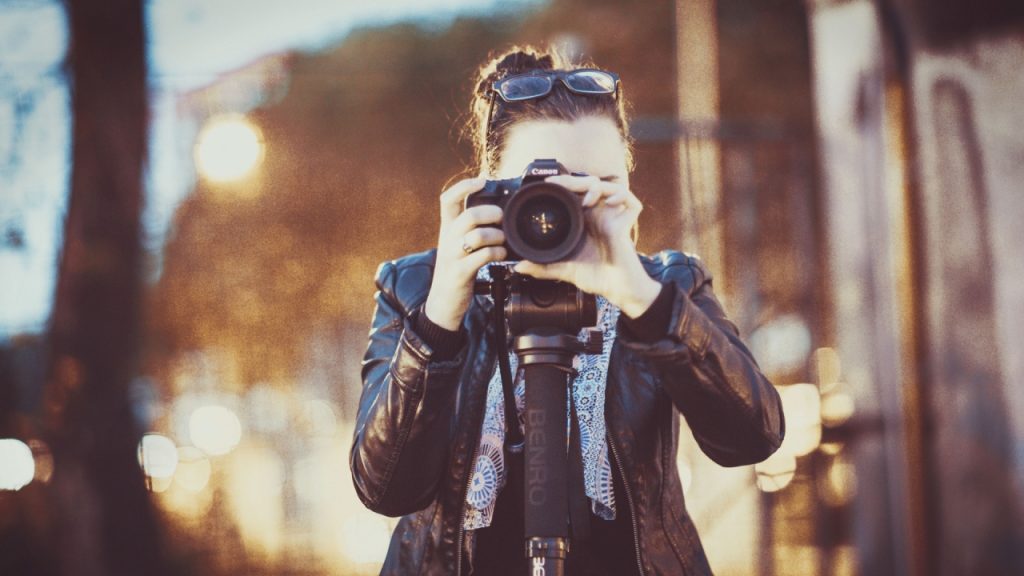
Source: fshoq.com
DSLRs for neophytes are your best option if you want something to help you take your photography to at least a level up, offering more control and capabilities than the average smartphone can provide.
So, what should you look for in the beginner DSLR camera? Start by looking at the beginner DSLR price to stay within the budget that works for you. Remember that you’ll be paying for other items, such as lenses, memory cards, batteries, filters, and a nice camera bag. Next, nail down the type of use you intend to get out of it. Look for the optimal size for your needs. Also, check features like resolution (megapixels), optical viewfinders, sensor size, shutter speed, dust protection, and the display screen size.
You should have fun looking for a good camera for a beginner. Before we look at some here, though, let’s review what you should know about the best entry-level DSLRs.
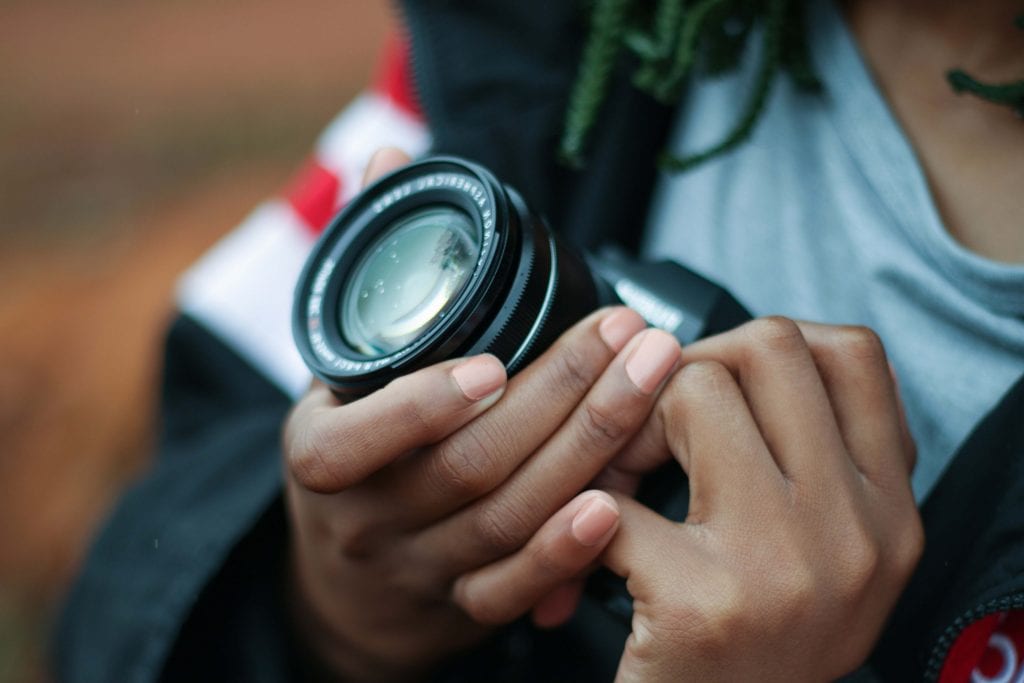
What Is A DSLR?
Best DSLR For A Beginner
You may already know this, but if you don’t, here it is. It stands for digital single-lens reflex. The single lens is often changed out for multiple other lenses. That’s what a DSLR camera is known for.
These cameras work by allowing light to come in through the lens. The person taking the picture can see the photo’s subject through the viewfinder because the light reflects off a mirror inside the camera and travels to the eye. When the photographer shoots the picture, the mirror moves out of the way to transmit the image to the SD card for storage. However, some mirrorless models use electronic viewfinders to display images digitally.
An entry-level DSLR camera usually has many preset picture-taking modes, such as continuous shooting and image stabilization, that you can use to shoot different kinds of photos. However, if you want to try to master the art of manual photography, there will also be a mode for that.
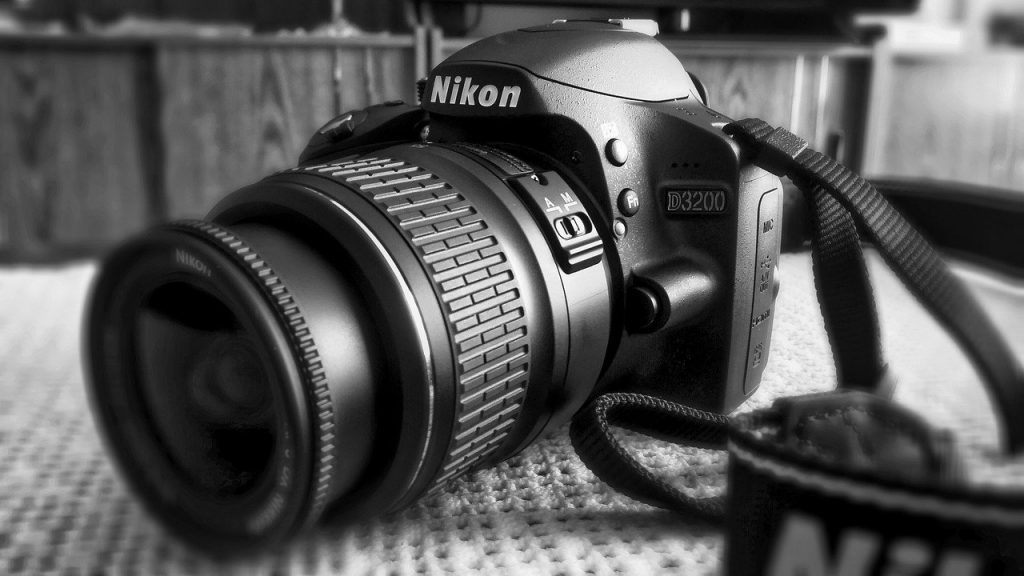
What Should I Look For When Buying An Enthusiast Level DSLR?
The image sensor is one of the most important components of a beginner DSLR camera. The sensor detects light and pulls it in. A larger image sensor should give you better clarity in your images. You’ll also find it does much better in low-light conditions.
The image sensor size will determine how well-printed pictures turn out. It can also depend on whether you have a full-frame camera.
You may not think you’ll need different lenses, but it’s fun to try them out and see what a difference they can make in image quality. See what lenses would be compatible with the cameras you’re considering. Also, see if any additional lenses come with the ones you’re eyeing.
Even looking for a beginner camera should include finding one with manual settings to play around with. With manual settings, you can make some cool tweaks to pictures (such as going to video mode and dialing in your preferred video quality settings, for example).
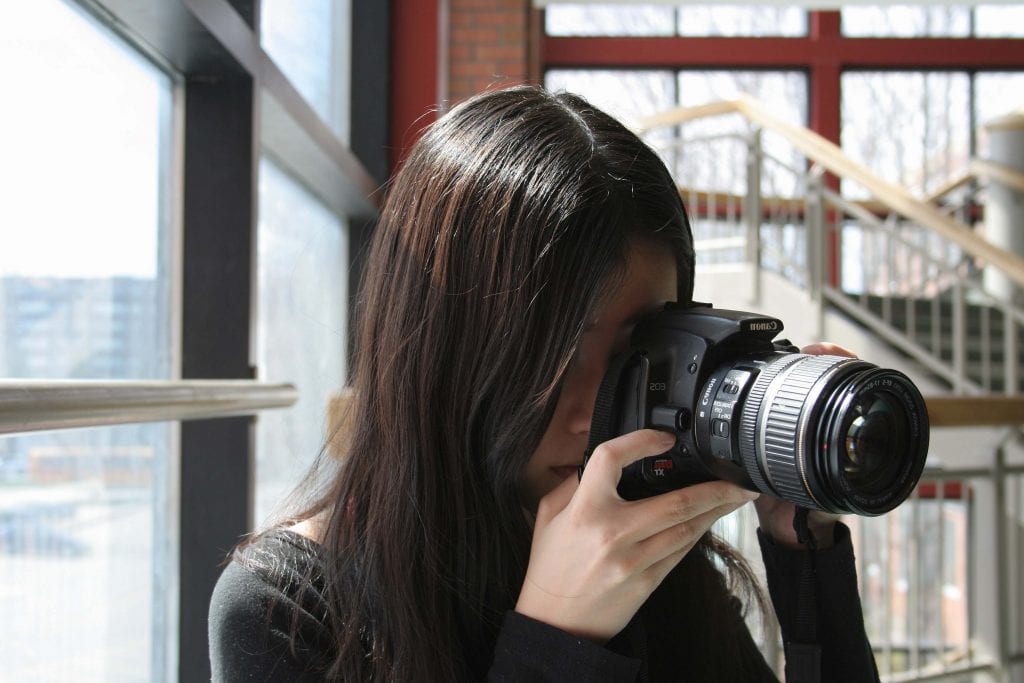
You should check out the viewfinder on the cameras. You can get LCD, OLED, or Canon Ef-S screens already integrated into different cameras. If you can try out the camera before buying it, you should certainly do that, especially to test if it has a good image quality.
The obvious thing to consider is the price. But, we want to mention this because you may think that best cameras has to cost you a lot of money. It may not cost as much as you think it will. The prices for many of these DSLRs have dropped over the last few decades. Look for the best budget DSLR with the exact features you want for the price you are comfortable paying.
Best DSLR For A Beginner
Canon EOS 2000D (Rebel T7) DSLRs With 18-55mm f/3.5-5.6 Zoom Lens
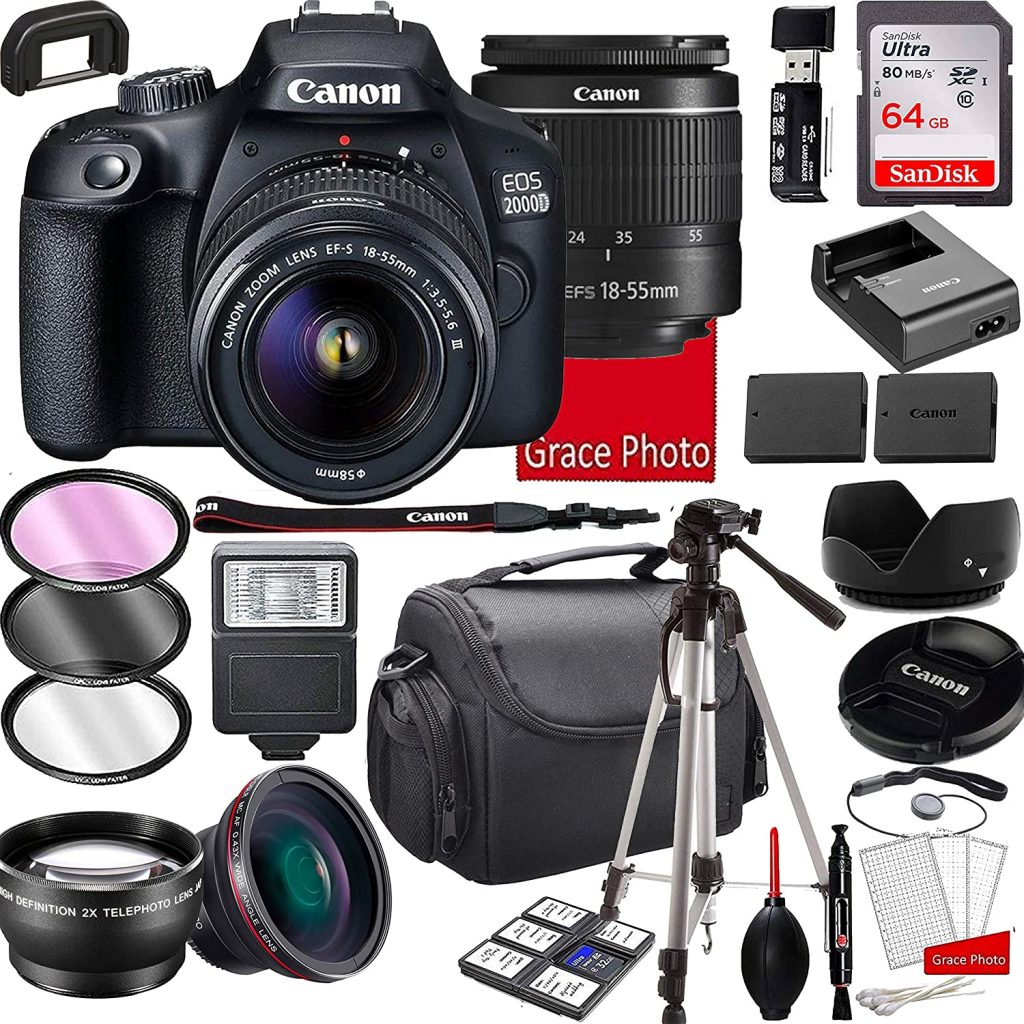
This is one of the best cameras for a beginner because it’s part of a bundle that comes with everything you’ll need to get started. You’ll get the camera, an 18-55 mm lens, a battery pack and charger, filters, a memory card reader, a wide-angle lens, a telephoto conversion lens, a camera bag, a tripod, a spare battery, a cleaning kit, and more. You’ll have an LCD screen to view images on, as well as an auto mode that reads the scene and sets the best beginner DSLR cameras to the optimal levels for the best pictures.
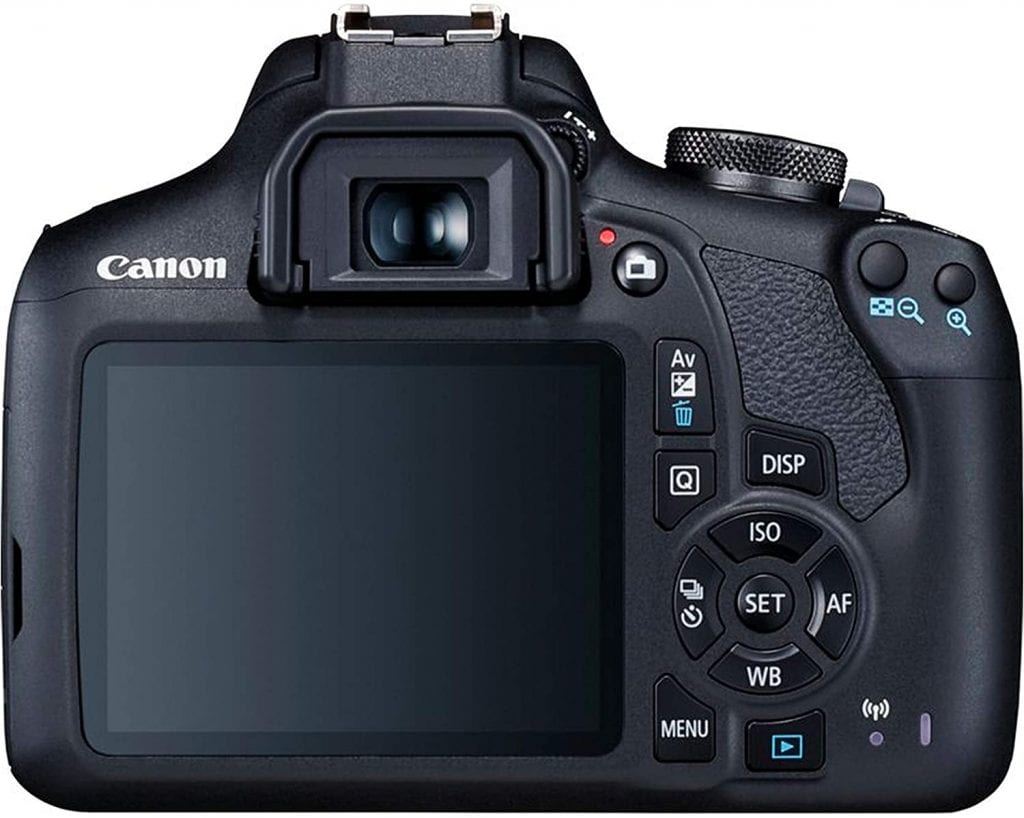
Pros:
- You’ll have everything you need to start right away
- This DSLR camera has menus that are easy to navigate
- Good range from the lens included
- A simple-to-use DSLR camera
- Also has a vari-angle LCD screen
- It is considered one of the lightest DSLR
- Intuitive picture-taking for a great photo and full HD video
- Canon EOS DSLR camera has a large 3.0″ 920k-dot LCD monitor
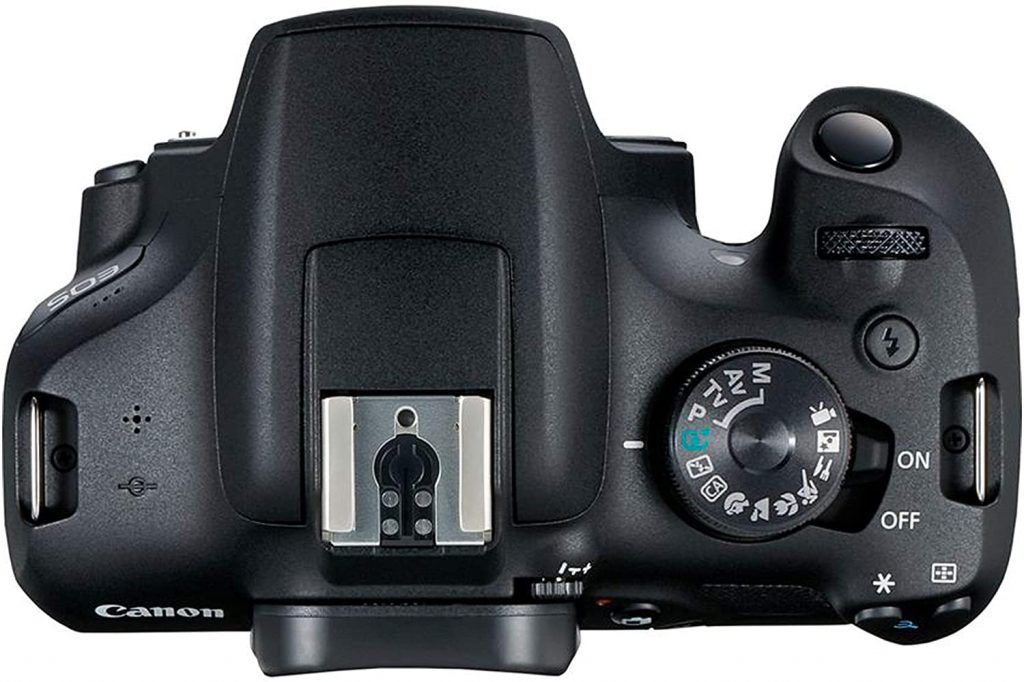
Cons:
- Some accessories of this DSLR camera do not have good quality
- Though it does have dual-pixel autofocus, it does not have the dual-pixel CMOS AF
- Unlike Canon EOS Rebel T8i, it has neither max video resolution nor 4k video
- EOS 2000D DSLR Camera is entry-level so we may have to upgrade later on
Canon EOS Rebel T7 DSLR With 18-55mm f/3.5-5.6 Zoom Lens
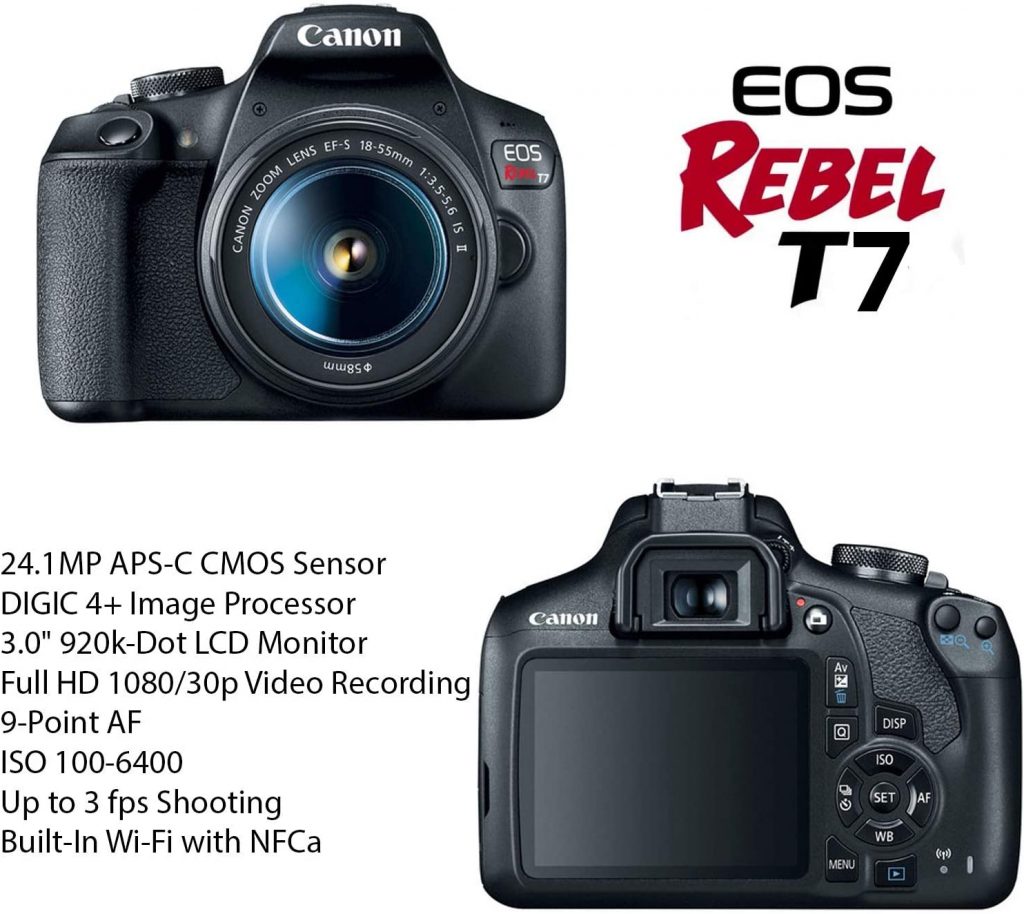
This DSLR camera bundle also comes with a bag and the accessories you’ll need to start learning some photography skills. The camera has a large sensor for taking very detailed and clear pictures. You can shoot subjects in motion, even in low-light settings, and still get outstanding image quality. The bundle includes a zoom lens to shoot with, as well as a lens cleaner brush pen and lens dust blower. You’ll also get a battery charger, a tripod, and an SD card.
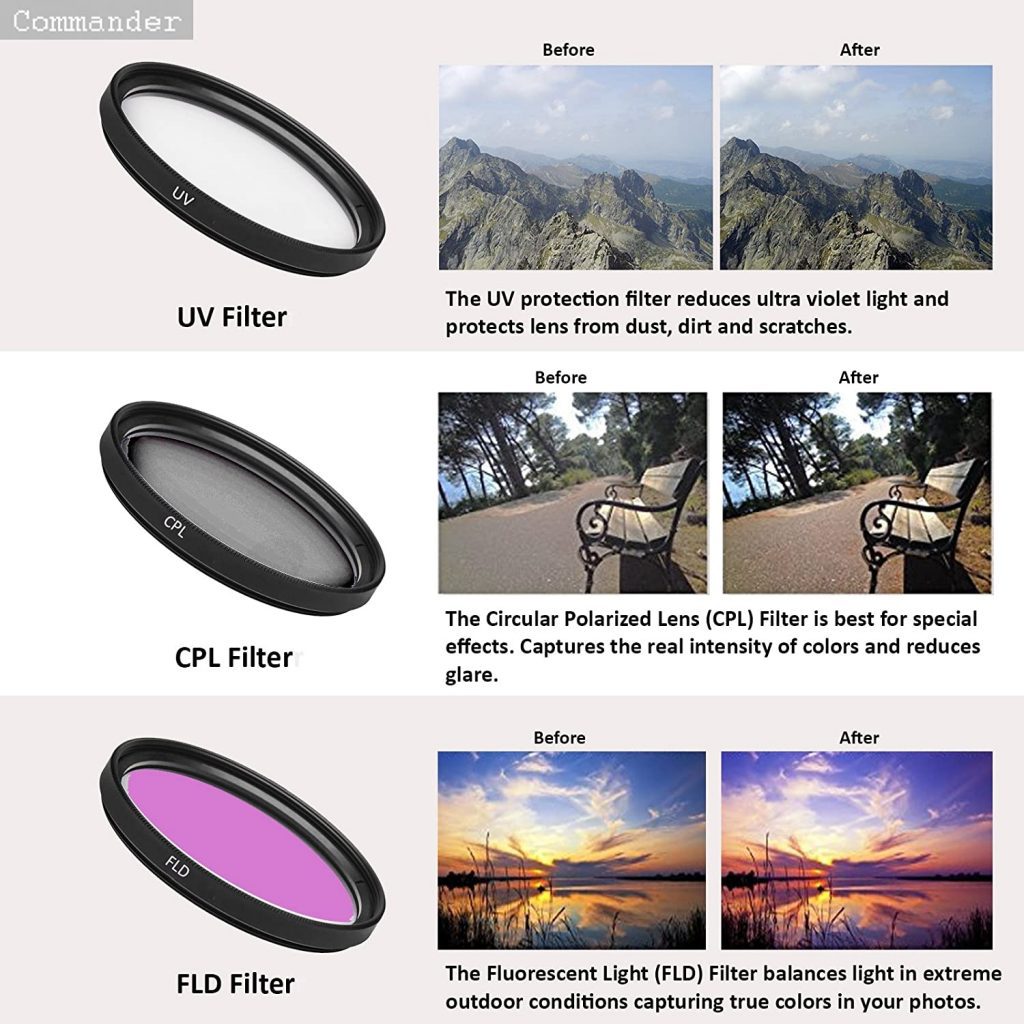
Pros:
- Canon EOS Rebel T7 DSLR Camera is easy to use
- Great image quality
- The bundle has accessories to add value to your purchase
- This DSLR camera has a large image sensor
- Many picture-taking modes
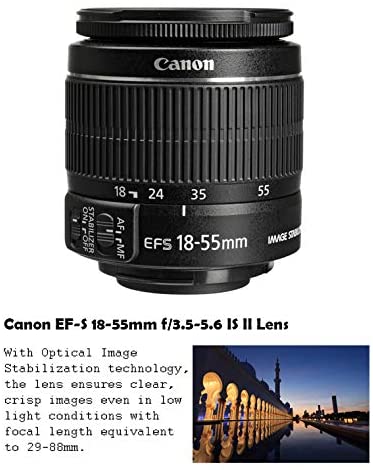
Cons:
- Can’t be used with third-party flash
- EOS Rebel T7 DSLR camera video can only be recorded for a couple of minutes
- The tripod in the bundle is very light and low-quality
Canon EOS 4000D DSLR With EF-S 18-55mm f/3.5-5.6 III Lens
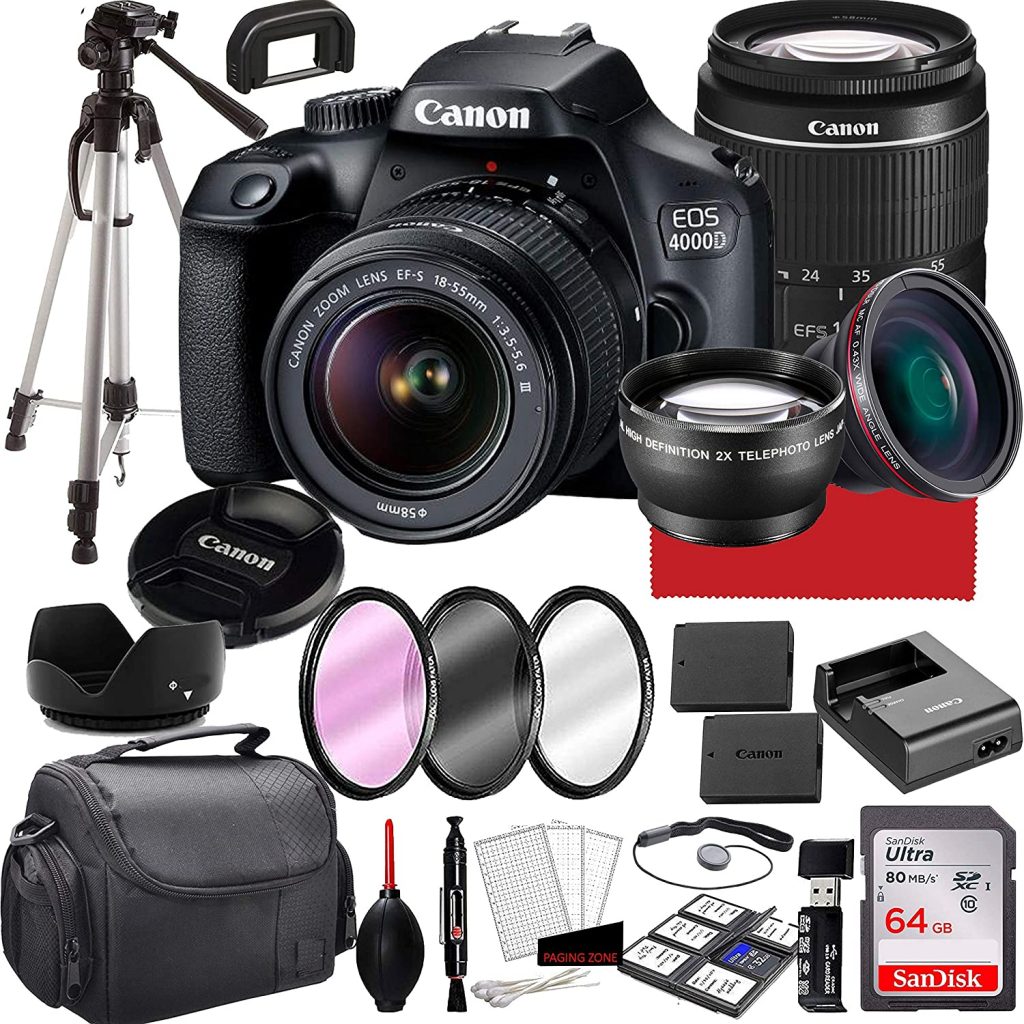
The renewed bundle that comes along with the 4000D DSLR camera has more accessories that can help you take your photography to the next level. You’ll get a battery pack and charger and an extended-life battery pack as a backup. The DSLR camera has cleaning tools, lenses, a digital flash, a 64GB memory card, and filters. You will also get a bag to carry everything. The image sensor on the camera is large so you can create super detailed photos with excellent image quality and vibrant color. You can shoot with manual settings or choose from the automatic modes.
Pros:
- Everything you need to level up in your picture-taking
- Intuitive to help you make the highest quality photos
- Has room to grow
- Extra battery as a backup
- EOS 4000D DSLR camera has a great price
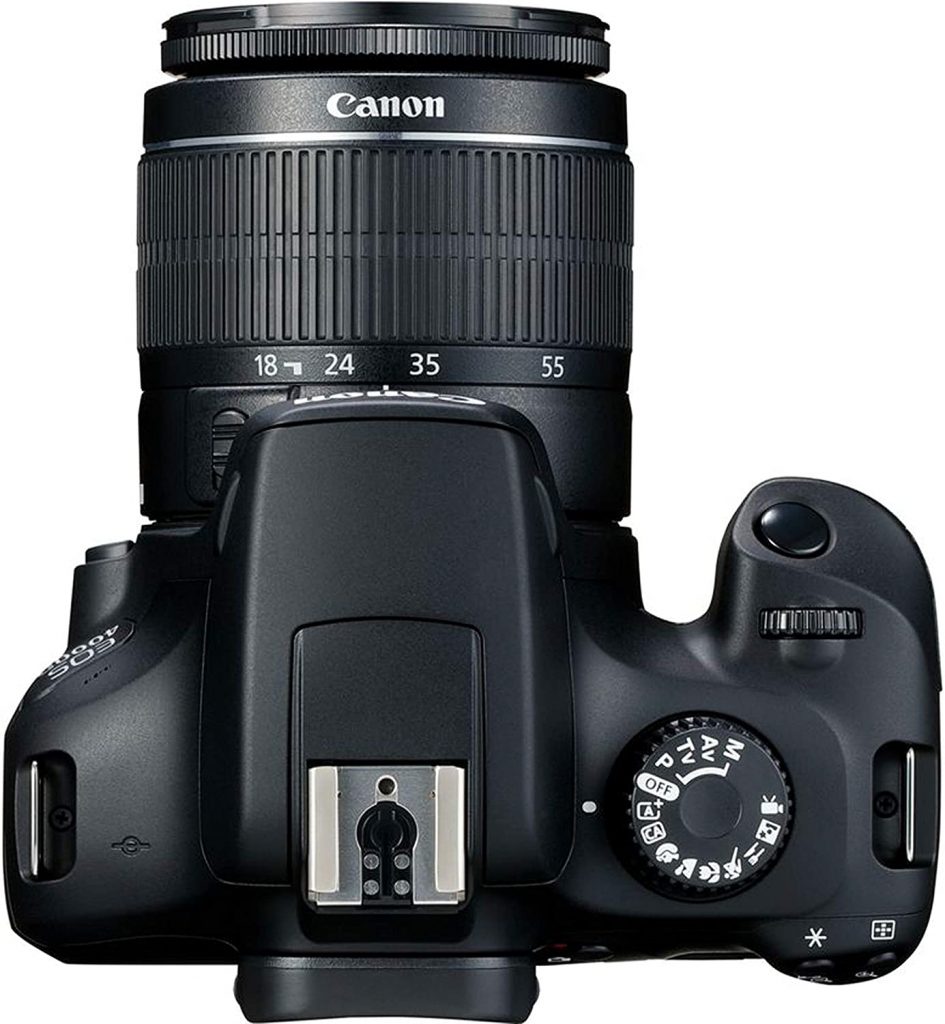
Cons:
- The EOS 4000D DSLR camera’s viewfinder is a little blurry
- Missing parts reported
Best DSLR For Beginners
Wrap Up
Choosing a DSLR camera for beginners doesn’t have to be difficult. As you can see in this article, the Canon EOS cameras are good options for those who are just getting started with photography. The things you want to consider when you’re looking for your DSLRs are how you intend to use them and where. That will help you determine what size of image sensor you need and how big of a camera you want to use. The DSLR cameras we looked at here are all part of bundles you can purchase that gives you more for your money.
It is smart to start with many useful tools to help you learn more about photography and start your journey of taking beautiful photos wherever you go. Even with a budget DSLR, it is definitely a fun activity to learn and enjoy.
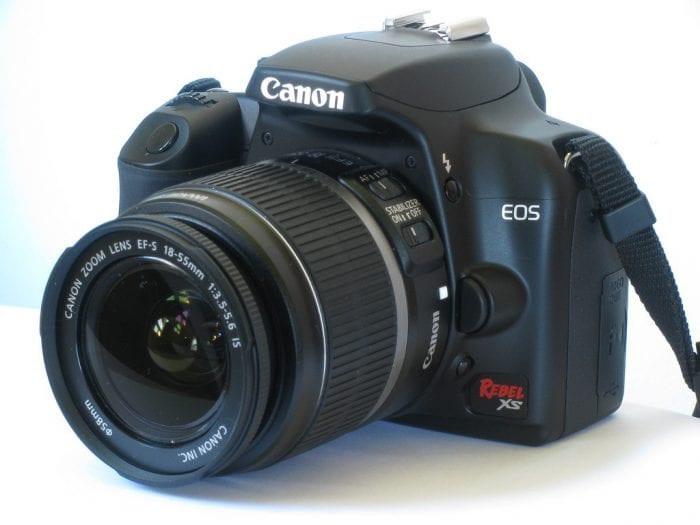
Best DSLRs For Beginners
Frequently Asked Questions (FAQs)
What Is The Best DSLR For A Beginner?
Canon EOS Rebel T7 is considered the best DSLR camera for beginners. It has many preset modes that help you take great photos and even HD videos while learning.
What Camera Is Best For A Beginner?
Beginners should check out the Nikon D3500 Camera or the Canon EOS Rebel SL3 Camera.
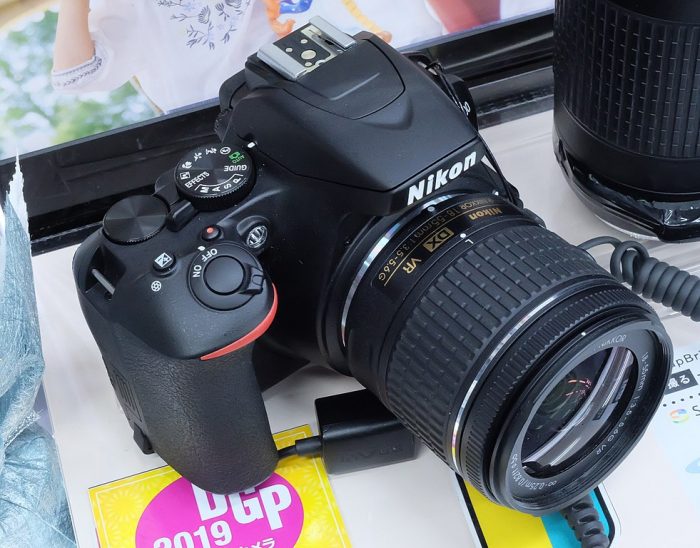
Canon Vs Nikon: Which One Is The Best Beginner Camera?
It doesn’t matter which of these brands you go with. They each have options for entry-level DSLR cameras. However, Nikon cameras are the cheapest DSLRs.
Canon Vs Nikon: Which Brand Is Better?
One isn’t better than the other. Canon and Nikon camera brands run neck and neck and basically dominate the market. Usually, serious photographers are on Team Canon or Team Nikon.
What Does EOS Stand For Canon?
The EOS used in reference to Canon cameras stands for Electro-Optical System.
Mirrorless Or DSLR: Which One Is Better For Beginners?
DSLRs are probably the better choice over mirrorless cameras. These cameras have longer battery life, a viewfinder, and are more sturdy. Even though the shooting speeds are slower than the continuous shooting speeds of mirrorless cameras, you’ll get more features, like auto-shoot modes and the ability to edit photos right on the camera.
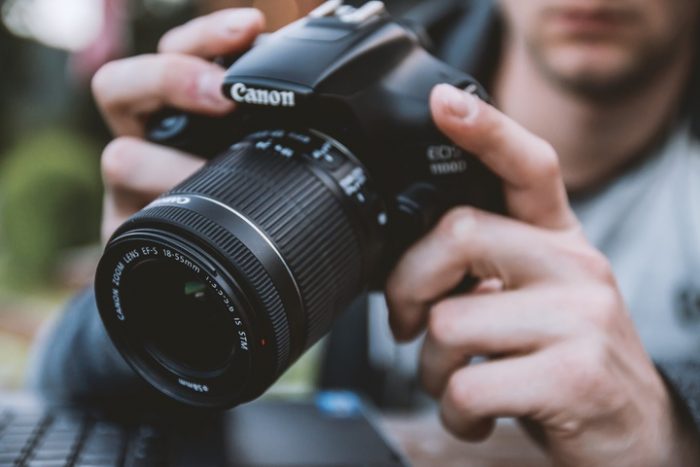
What Is The Most Affordable Camera For Photography?
One of the best affordable DSLRs is the Nikon D3500. The average price of this camera is around $450-$650.
SLRs Vs DSLRs: Which One Is Better?
These can be compared in terms of images. The SLR creates pictures with better contrast, tone, and color. The DSLRs are much easier to use and to share photos from.
What Does SLR Mean?
SLR stands for single-lens reflex. An SLR camera uses a mirror inside to reflect the light off it so you can see the scene or the subject you’re going to photograph. A DSLR camera is the same thing except in digital format. It works the same way, but you can work with your photos and view them digitally on the integrated screen within the camera body.
Which Is The Cheapest And Best DSLR Camera?
The Canon Rebel series is the best beginner camera, offering great value with a kit lens for those starting their photography journey. Its affordability and detailed images make it an ideal entry-level DSLR camera for outdoor photography and wildlife photography.
Can A Beginner Use A DSLR Camera?
Absolutely, a beginner DSLR camera like the Canon EOS 90D is designed for newcomers. It combines advanced features such as an advanced autofocus system and in-body image stabilization with a user-friendly interface, making it easy to learn camera settings and techniques for detailed images.
Which DSLR Camera Is Best For Photography And Videography For Beginners?
For those venturing into photography and videography, the Canon EOS 90D is an excellent choice. It offers superior image quality with a high-resolution sensor and detailed images, plus a responsive touchscreen and advanced autofocus system for smooth video capture.
Should A Beginner Use DSLR Or Mirrorless Cameras?
Both have their merits, but a mirrorless camera often provides a more compact solution with an electronic viewfinder, interchangeable lenses, and in-body image stabilization, making it a versatile choice for beginners keen on exploring landscape photography or detailed images with the ability to swap lenses.
How Do I Pick A Good Camera For A Beginner?
Look for a camera that offers a blend of advanced features and user-friendly design. Consider factors like an autofocus system, a high-resolution sensor for detailed images, and in-body image stabilization. The camera’s size, rear LCD screen, and whether it has an optical viewfinder (DSLR) or electronic viewfinder (Mirrorless) should also influence your decision.
Why Is A DSLR Better Than A Phone Camera?
A DSLR provides superior image quality with a high-resolution sensor and detailed images, thanks to its advanced features like an advanced autofocus system and the ability to swap lenses for different photography needs. The optical viewfinder and in-body image stabilization offer precision and stability that surpass most phone cameras, making it a preferred choice for serious photography enthusiasts embarking on a journey.
Other Resources
Check out the following resources to get more updates on entry-level cameras:
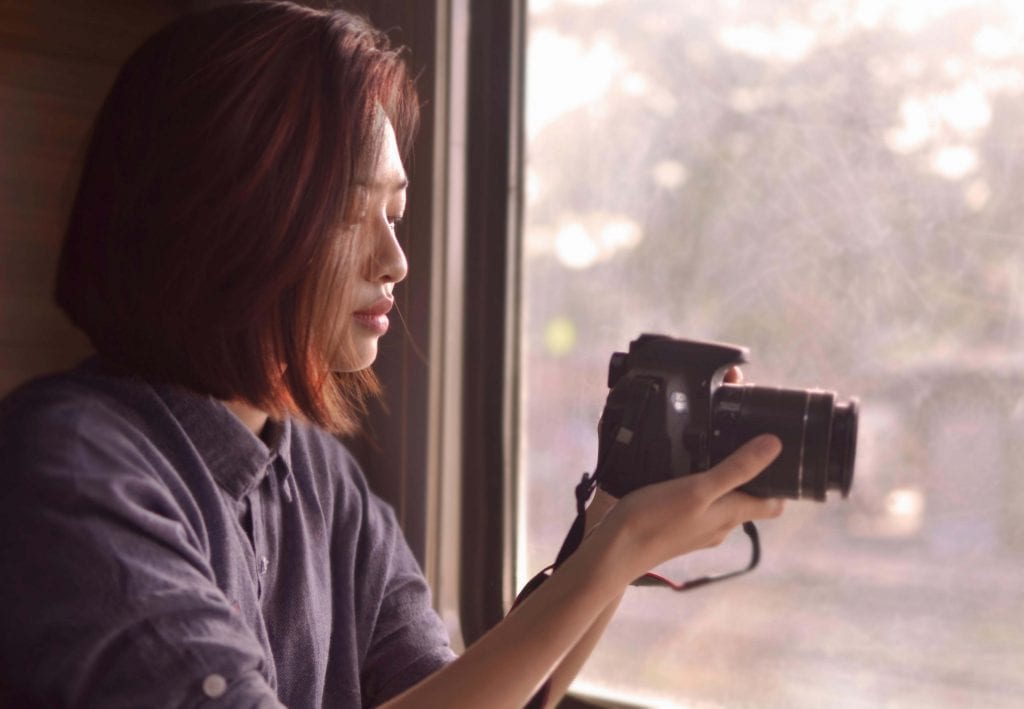
Learn More About Canon, Nikon, Pentax, Sony, And More Brands On Digital Camera World Facebook.
Check For Digital Camera Information And Updates On TechRadar Facebook.
Visit Photography PX Facebook To Get The Latest News On DSLR.
Reviews On DSLR On Youtube.
Last Updated on April 13, 2023 by Inma Barquero
DISCLAIMER (IMPORTANT): This information (including all text, images, audio, or other formats on FamilyHype.com) is not intended to be a substitute for informed professional advice, diagnosis, endorsement or treatment. You should not take any action or avoid taking action without consulting a qualified professional. Always seek the advice of your physician or other qualified health provider with any questions about medical conditions. Do not disregard professional medical advice or delay seeking advice or treatment because of something you have read here a FamilyHype.com.